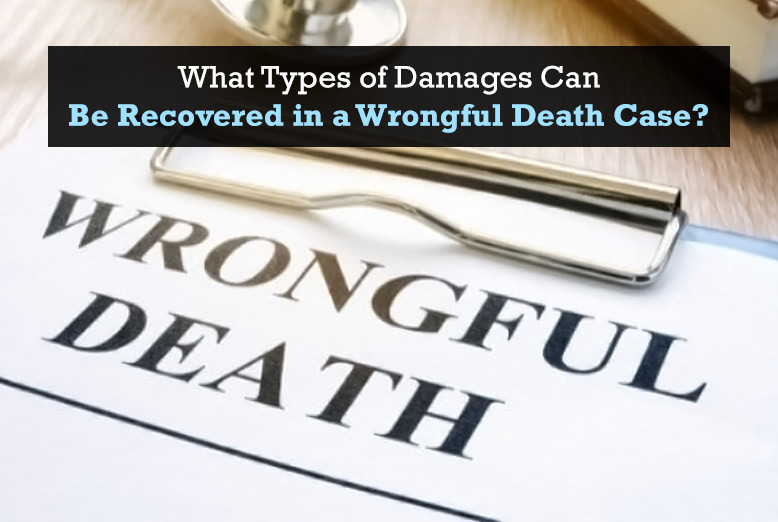Losing a loved one due to someone else’s negligence is an unimaginable tragedy. Although nothing can bring back a loved one, the legal system allows families to find justice. In New York, families who lose a loved one unexpectedly can seek compensation through wrongful death claims for the support and losses they’ve experienced. These damages aim to address the financial and emotional impact caused by the loss. Knowing what compensation you can claim helps ensure you get what you deserve. Families often face mounting expenses, and knowing your legal rights can provide some relief during a challenging time.
Economic Damages in a Wrongful Death Case
Economic damages are one of the most straightforward categories in a wrongful death case. These damages cover the financial losses directly caused by the death of your loved one. This includes medical expenses incurred before the death, funeral and burial costs, and lost income. When calculating lost income, courts may consider both current earnings and future earning potential. For example, if the deceased was the primary breadwinner, their projected income over their lifetime could be part of the claim. These damages also account for any benefits, such as pensions or health insurance, that surviving family members would have received. By documenting these costs carefully, you can strengthen your case.
Non-Economic Damages Address Emotional Losses
Non-economic damages focus on the emotional and psychological toll of losing a loved one. These damages are less tangible than economic ones but are just as important. In New York, families can seek compensation for the loss of a loved one’s companionship, guidance, and emotional support. Losing a spouse, parent, or child often leaves an irreplaceable void, and these damages aim to recognize that loss. While non-economic damages are more challenging to quantify, they are crucial in providing justice to grieving families. Courts may consider factors like the deceased’s role in the family and the quality of the relationships involved. A skilled attorney can help ensure these losses are properly evaluated.
Damages for Pain and Suffering of the Deceased
Another category of damages involves the pain and suffering endured by the deceased before passing away. These damages compensate for the physical and emotional distress your loved one experienced due to the incident. For example, if the deceased was injured in an accident and survived for a period before succumbing to their injuries, this suffering could be part of the claim. Courts may consider how much pain the person experienced, how long they suffered, and how it affected their quality of life. Medical records, witness statements, and expert testimony often help establish this type of claim. This category emphasizes the dignity and suffering of the individual whose life was lost.
Loss of Services and Support to Family Members
When a loved one passes away, their contributions to the household are often irreplaceable. Loss of services damages address the value of the support the deceased provided. This includes tasks such as childcare, household chores, and other contributions that benefit the family. For example, a parent’s guidance and care have a measurable value even if they were not earning a salary. Calculating these damages often requires expert analysis to determine the monetary value of such services. Courts may also consider how the loss impacts the family’s daily life and future stability. This type of claim ensures that the full scope of the deceased’s contributions is recognized.
Punitive Damages in Extreme Cases
In certain wrongful death cases, courts may award punitive damages. These damages are not meant to compensate the family directly but instead aim to punish the responsible party for particularly reckless or intentional behavior. Punitive damages are relatively rare in New York and are generally awarded in cases involving egregious misconduct. For example, if the death resulted from a drunk driving incident or a criminal act, punitive damages might apply. These damages also serve as a deterrent, discouraging others from engaging in similar behavior. While they are not guaranteed, punitive damages can significantly increase the overall compensation in a case.
Legal Deadlines and Importance of Acting Promptly
New York has specific time limits for filing a wrongful death claim. Families typically have two years from the date of death to file a lawsuit. Missing this deadline can result in losing the right to seek compensation entirely. Acting promptly allows your legal team to gather evidence, interview witnesses, and build a strong case. Delays can also make it harder to document damages, especially for non-economic losses. Working with an experienced wrongful death attorney ensures that all legal requirements are met. Proper legal guidance can make all the difference in recovering the damages your family deserves.
Pursuing a wrongful death claim is about more than financial recovery. It’s about honoring the memory of your loved one and holding the responsible party accountable. Economic damages can help cover medical bills, lost income, and other measurable losses. Non-economic damages address the emotional impact on the family, recognizing the deep void left behind. In some cases, punitive damages may further provide justice for particularly egregious behavior. By understanding the types of damages available, families can take the steps needed to secure fair compensation. Every case is unique, and legal representation ensures that your claim reflects the full extent of your loss. Seeking justice can provide a sense of closure and help families move forward.




















